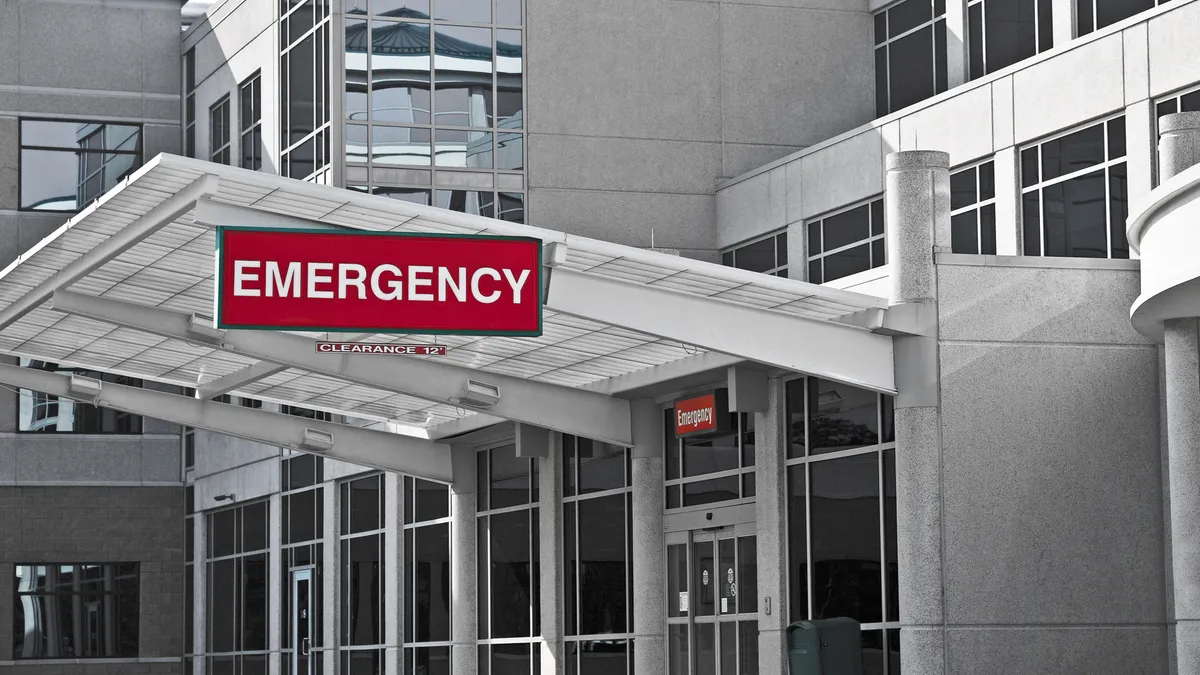Aiming to quickly expand testing capacity for the coronavirus as new cases climbed over the weekend and the first U.S. deaths were confirmed, FDA on Saturday said it will allow some laboratories to begin immediate use of new molecular diagnostics before regulatory review.
Under the policy, outlined in an FDA guidance document effective immediately, labs still must submit an emergency use authorization request to the agency 15 business days after validating a new test.
The agency also over the weekend cleared an EUA from the New York State Department of Health, three and a half weeks after FDA awarded the first EUA to a Centers for Disease Control and Prevention (CDC).
"Since authorizing CDC’s EUA, FDA has been actively working with other SARS-CoV-2 diagnostic developers to help accelerate development programs and respond to requests for in vitro diagnostic EUAs," FDA said in the guidance. "However, the severity and scope of the current COVID-19 situation around the globe necessitates greater testing capacity for the virus than is currently available."
The new policy applies only to laboratories certified to perform high-complexity testing and meet requirements under the Clinical Laboratory Improvement Amendments, FDA said. CLIA-certified laboratories include hospital, academic and commercial facilities. Those labs can start offering coronavirus testing as soon as validation is complete.
“We will continue to help to ensure sound science prior to clinical testing and follow-up with the critical independent review from the FDA,” Commissioner Stephen Hahn said in a statement. “We are not changing our standards for issuing Emergency Use Authorizations.”
“We believe this policy strikes the right balance during this public health emergency,” Hahn said.
The outbreak that began in Wuhan City, China, has spread throughout that nation and to at least 31 other countries and territories. The first two U.S. deaths related to COVID-19 were reported over the weekend.
A problem with one of the three reagents in the CDC test kit had led to some tests yielding inconclusive results, but Friday, the agency said states able to validate only the two components could proceed with testing following revised instructions. The third component can be excluded from testing without affecting accuracy. CDC also said it has manufactured new test kits that will include only the two components specific to novel coronavirus. Orders for the tests can be placed through the International Reagent Resource.
Rick Bright, director of the Biomedical Advanced Research and Development Authority, said in FDA's statement that his department is working to identify industry partners to develop rapid diagnostics for use in commercial and hospital labs as well as doctors’ offices.
Bright said FDA’s new policy could help reduce development costs and incentivize private development of tests. The guidance provides recommendations for manufacturers on test validation, FDA notification and interim clinical testing. FDA will host a webinar on the guidance from 3 p.m. to 4 p.m. Eastern Time on Monday.
The American Clinical Laboratory Association, in a statement Saturday, said U.S. commercial labs are ready to support increased testing capacity for the coronavirus response effort, and some are working to develop new tests for COVID-19.
Among diagnostics manufacturers working on potential coronavirus tests, Hologic spokesperson Jane Mazur said in an email Friday that the company hopes to submit for an EUA within a matter of weeks. A spokesperson for Roche, which said in January it was in talks with FDA regarding an EUA submission for a coronavirus test, said Friday the company did not have additional information to provide. Last week, Qiagen said it would apply for EUA status for its QIAstat-DX Respiratory 2019-nCoV Panel with the FDA. The Dutch firm is testing it in hospitals in China and France.
As it works to facilitate widespread testing for COVID-19, FDA is also monitoring more than 60 companies to assess the continued availability of essential medical devices. The agency on Thursday said it had identified several essential device manufacturing facilities in China affected by the outbreak.











